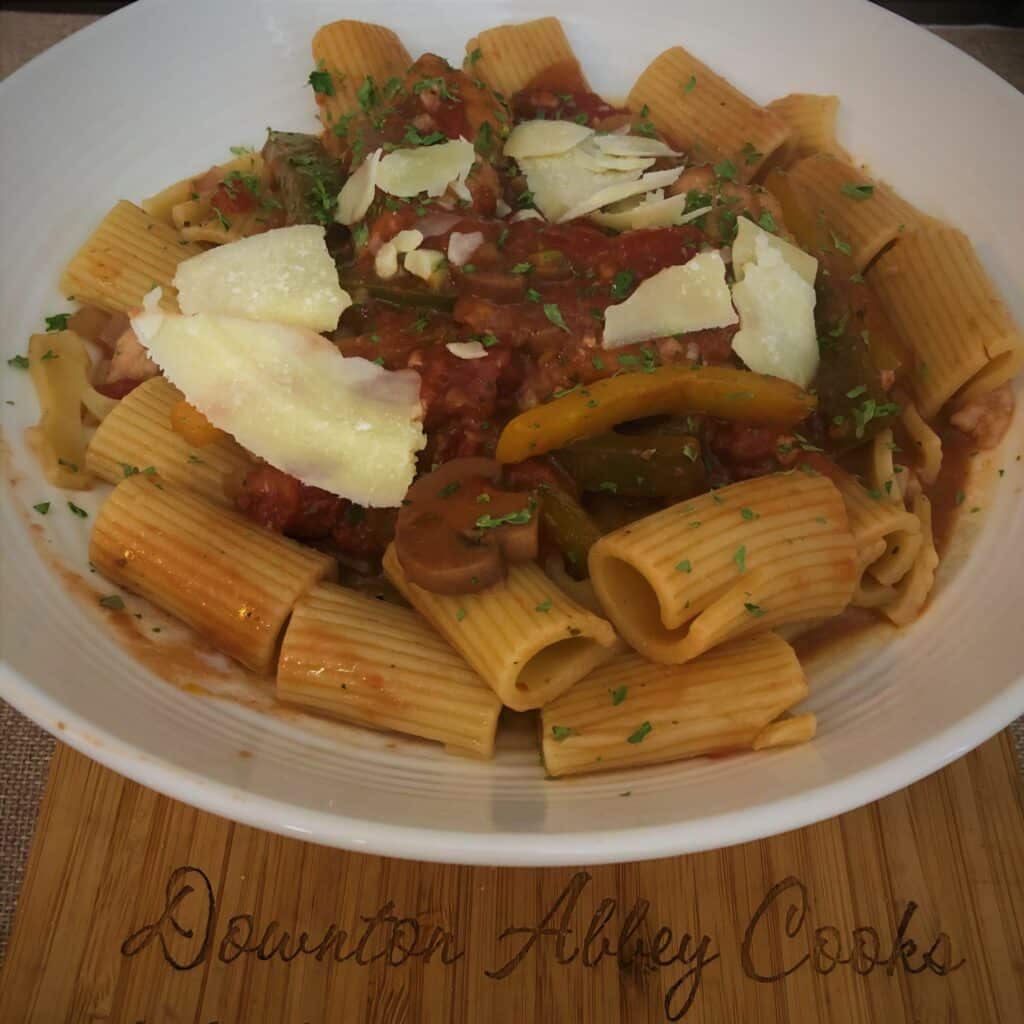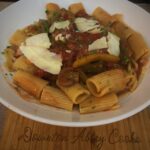The word Cacciatore means “hunter” in Italian. When used in cooking, it refers to a meal prepared “hunter-style” with onions, herbs, usually tomatoes, often bell peppers, and mushrooms and wine. In french it is called “chasseur”.
While fricassee (cut poultry sauteed/simmered in spicy liquid) is ancient, tomatoes anchor the possible genesis of cacciatora-type dishes to the 17th century. Some food historians claim that chicken cacciatore is an Italian-American dish. According to Food Timeline, a survey of historic newspapers confirms “cacciatora” was a new dish to average Americans in the 1920s.
Print
Traditional Chicken Cacciatore
The word Cacciatore means "hunter" in Italian. When used in cooking, it refers to a meal prepared "hunter-style" with onions, herbs, usually tomatoes, often bell peppers, and wine.
Servings 4 servings
Ingredients
- 1/4 cup dried mushrooms
- 1 whole chicken broken down into parts or 6 boneless chicke breasts
- 2 tbsp. olive oil
- 1 small yellow onion dices
- 4 cloves garlic minced
- 1 cup mushrooms, sliced
- 1 cup dry red wine,
- 2 cans diced tomatoes 28 ounces
- 1 tbsp. parsley chopped
- 1 tsp. rosemary
- 1 pinch kosher salt
- 1 pinch pepper freshly cracked
Instructions
- Boil 2 cups of water over the dried mushrooms and let sit for 20 minutes. Finely strain the mushrooms and reserve ½ of the liquid. Rinse the mushrooms, squeeze out all of the liquid and roughly small chop.
- Season the chicken parts well with salt and pepper. Heat the olive oil into a large shallow pot over medium heat and brown the chicken parts well on each side, about 4 minutes per side. Remove the chicken and set aside.
- Next, add the onions, celery, carrots, garlic, and mushrooms to the pan and sauté for 6 to 7 minutes. Deglaze with the wine and cook over medium heat until it is almost gone about 5 minutes.
- Pour in the reserved mushroom liquid, tomatoes, herbs, salt and pepper and stir. Add the browned chicken back in and add a lid to the pot and simmer over low heat for 25 to 30 minutes.
- Garnish with chopped parsley, and serve with pasta or polenta. We like to add a couple of flakes of parmesan cheese to finish off.
Notes
[recipe-video]

